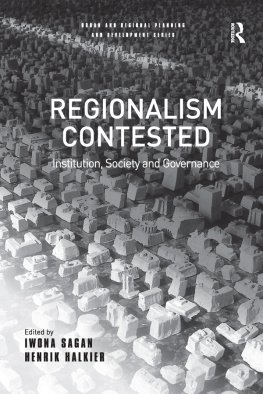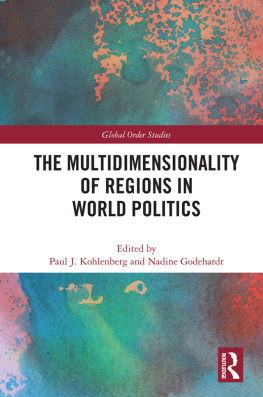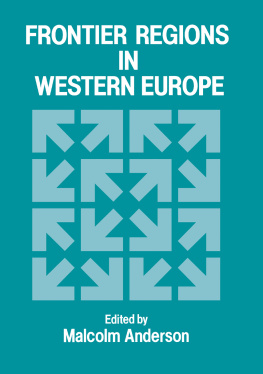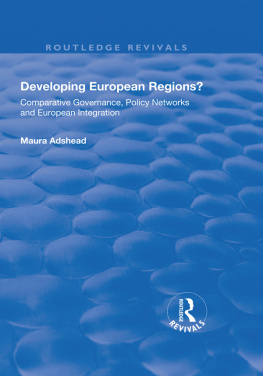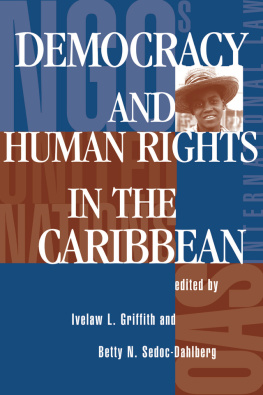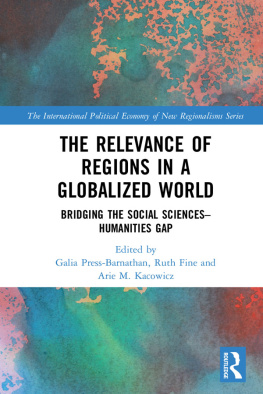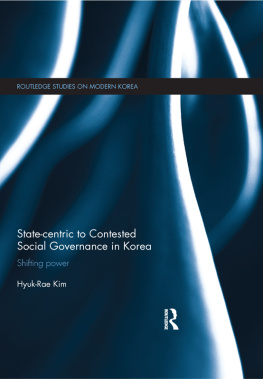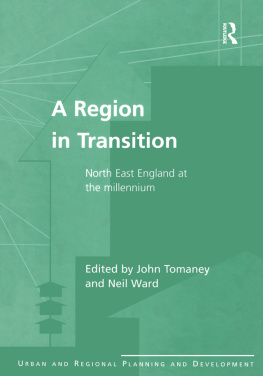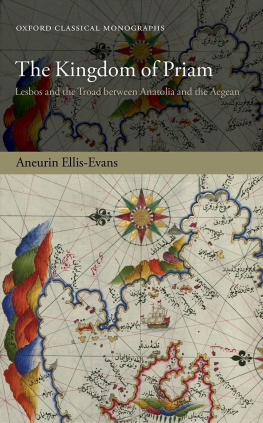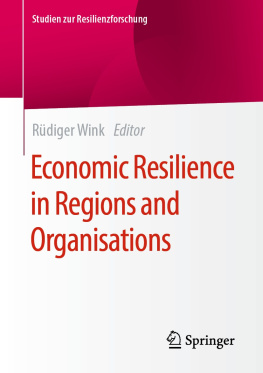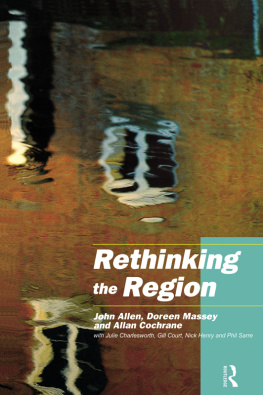First published 2005 by Ashgate Publishing
Published 2016 by Routledge
2 Park Square, Milton Park, Abingdon, Oxon OX14 4RN
711 Third Avenue, New York, NY 10017, USA
Routledge is an imprint of the Taylor & Francis Group, an informa business
Copyright 2005 Iwona Sagan and Henrik Halkier
Iwona Sagan and Henrik Halkier have asserted their right under the Copyright, Designs and Patents Act, 1988, to be identified as the editors of this work.
All rights reserved. No part of this book may be reprinted or reproduced or utilised in any form or by any electronic, mechanical, or other means, now known or hereafter invented, including photocopying and recording, or in any information storage or retrieval system, without permission in writing from the publishers.
Notice:
Product or corporate names may be trademarks or registered trademarks, and are used only for identification and explanation without intent to infringe.
British Library Cataloguing in Publication Data
Regionalism contested : institution, society and
governance. - (Urban and regional planning and
development series)
1. Regionalism - Europe 2. Municipal government - Europe
3. Central-local government relations - Europe 4. Europe
Politics and government - 1989
I. Sagan, Iwona II. Halkier, Henrik
320.8309409049
Library of Congress Cataloging-in-Publication Data
Regionalism contested : institution, society and governance / edited by Iwona Sagan and Henrik Halkier.
p. cm. -- (Urban and regional planning and development series)
Includes index.
ISBN 0-7546-4361-1
1. Regionalism--Europe. 2. Regionalism--Great Britain. 3. Regional planning-
Europe. 4. Regional planning--Great Britain. 5. Europe--Politics and government-
1989- I. Sagan, Iwona. II. Halkier, Henrik. III. Series: Urban and regional planning
and development.
JN94.A38R4364 2005
307.1094--dc22
2005003556
ISBN 9780754643616 (hbk)
Harvey Armstrong, Professor, Department of Geography, University of Sheffield, UK.
Oddbjrn Bukve, Professor, Sogn og Fjordane University College, Norway.
Leeda Demetropoulou, Dr, UEHR, Panteion University, Athens, Greece.
Liz Dixon, CURDS, University of Newcastle, Newcastle upon Tyne, PhD student.
Martin Ferry, Dr, Research Fellow, European Policies Research Centre, University of Strathclyde, UK.
Panayiotis Getimis, Professor, UEHR Director, Panteion University, Athens, Greece.
David C. Gibbs, Professor, Department of Geography and Centre for City and Regional Studies, University of Hull, UK.
Henrik Halkier, Associate Professor, International Studies, University of Aalborg, Denmark.
Tassilo Herrschel, Dr, Lecturer, Department of Social Studies, University of Westminster, London, UK.
Andrew E. G. Jonas, Professor, Department of Geography and Centre for City and Regional Studies, University of Hull, UK.
Martin Jones, Professor, Director of the Institute of Geography and Earth Sciences, University of Wales, Aberystwyth, UK.
Roger Lee, Professor, Department of Geography, Queen Mary University of London, UK.
Gordon MacLeod, Dr, Lecturer, Department of Geography and International Centre for Regional Regeneration and Development Studies University of Durham, Durham, UK.
Irene McMaster, Dr, Research Fellow, European Policies Research Centre, University of Strathclyde, UK.
Peter Newman, Dr, Centre for Urban and Regional Governance, University of Westminster, London, UK.
Iwona Sagan, Professor, Department of Economic Geography, University of Gdansk, Poland.
Carlos Nunes Silva, Dr, Department of Geography, University of Lisbon, Portugal.
Markku Sotarauta, Professor, Department of Regional Studies, University of Tampere, Finland.
Stephen Syrett, Dr, Lecturer, Institute of Social Science Research, Middlessex University, London, UK.
Peter Wells, Dr, Centre for Regional Economic and Social Research, Sheffield Hallam University, UK.
Aidan While, Dr, Lecturer, School of Planning and Landscape, University of Manchester, UK.

